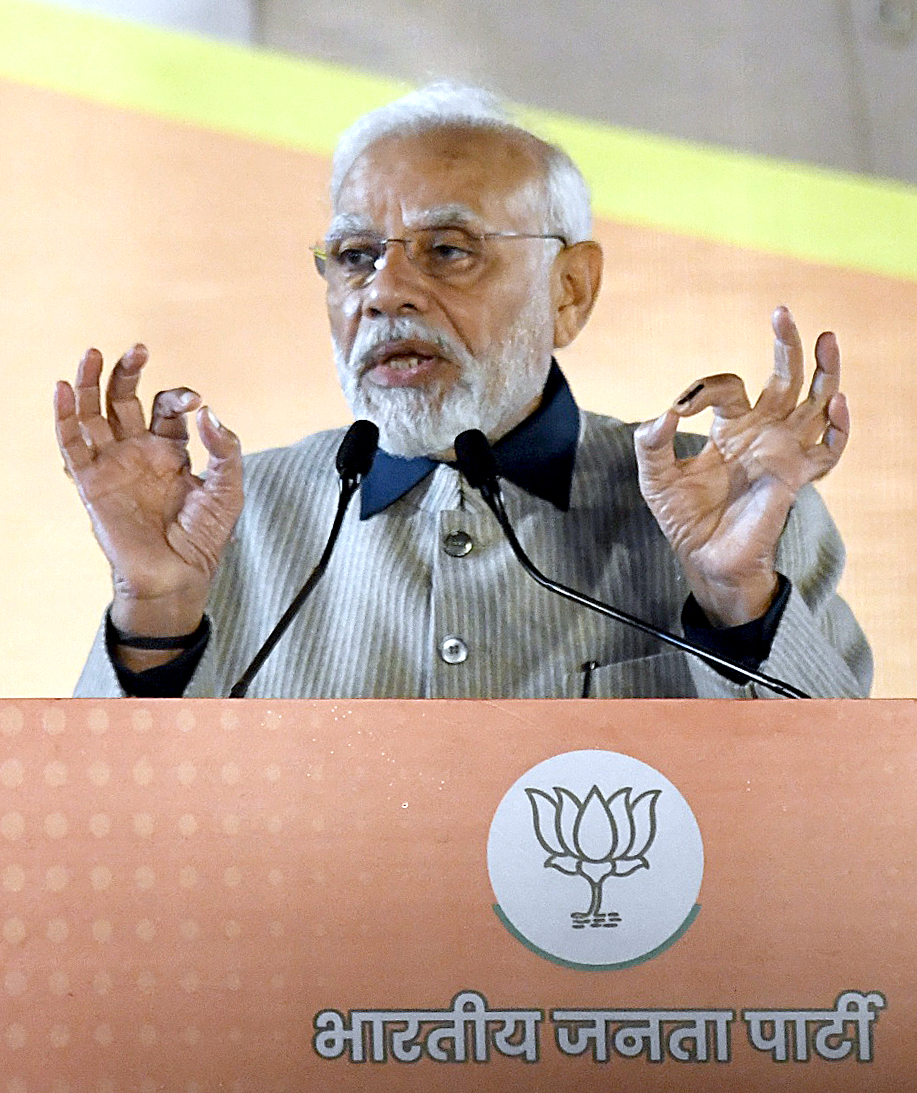The qualitative narrative on the ground is, ‘India under Modi is secure and the global prestige of the nation has improved’.
The Prime Minister Narendra Modi-led BJP received a historic mandate in Gujarat, with over 50% vote share, and over 150 seats. The Jan Ki Baat poll had pointed out that the BJP was winning with its biggest winning mandate in Gujarat till date. Results in Gujarat also pointed to a mandate that had BJP reach the tally of highest seat share received by any political party in Gujarat till date. Deep diving into the result further, data suggest that PM Narendra Modi received more votes across caste, demography, age group and region. BJP bettered its vote in tribal seats, winning more than 80% of the total seats; it won more than 90% of urban seats; and more than 70% seats belonging to rural dominated demographics. The quantum of victory coming after 27 years of BJP being in power in Gujarat demolishes the age old traditional political analysis saying, “when in government, anti incumbency seeps in”’. PM Narendra Modi through his last mile social delivery, personal charisma and strong civilisational leadership has put himself in a comfortable position in the run-up to 2024. The verdict of Gujarat is not a state specific phenomenon. Flash back a few months ago to Uttar Pradesh and you saw the BJP repeat it government with a near 2/3rd majority. State elections also have state centric local factors which catalyse or reduce the Modi appeal to impact the overall outcome. But despite these, PM Narendra Modi has appealed to voters agnostic of geography. In the true sense, Gujarat was Narendra Modi testing Brand Narendra Modi before 2024. In the run-up to 2024, the Lok Sabha elections will see PM Narendra Modi asking voters to vote his government for a third time in 2024. Just like in Gujarat it was “Modi vs Others”, 2024 is all set to become “Modi vs All”. Just like in Gujarat it became about Modi’s work in Gujarat, 2024 will be about the mandate on Narendra Modi’s work for India. Voters vote out a personality, or vote in a personality. Political parties provide the necessary organization for a leader to convert his mass appeal into winning votes. Here too the BJP has strengthened its institution in comparison to 2014 and 2019. No other political party matches this organisational ability in the current context. This gives the BJP a chance to take PM Narendra Modi’s appeal to more voters than it did in 2014 and 2019. Many “neutral” analysts are fantasising a less than 272 for Modi in 2024, like they did in 2014. However data and trends suggest the voters’ apathy to give a hung verdict in a post 2014 era. These are the same neutral analysts who created a “mahol” (buzz) by giving more than 20% vote share to a third party in Gujarat, which was away from the ground reality. PM Narendra Modi hit out at this “neutral lobby” in his victory speech at the BJP headquarters post the verdict in Gujarat. Data by Jan Ki Baat suggest that voters in the run-up to 2024, particularly the young and the women with information flowing into their smartphones give importance to two factors:
1. Which leader has benefited them
2. Which leader has benefited India.
On both these parameters, no other leader comes a close second even in the states to Narendra Modi. In 2014 Modi received 90% seats from 60% geography, which expanded to more than 70% in 2019 and is bound to be more than 80% in 2024. With Narendra Modi’s global stature at an all time high, and India’s foreign capital representing the position of a leading power, and not an emerging power, Modi will appeal to a bigger demography than he has until now. It will not be surprising if the BJP betters its vote share than in 2019, just like it did in 2019 vis-à-vis 2014. Gujarat 2022 saw a weak Congress and an ambitious AAP. But voters chose the “trusted Modi”. Even areas where the opponents campaigned aggressively like Surat, the 27 tribal seats, Saurashtra, all saw BJP’s social engineering and Modi’s trusted work panning two and a half decades overpowering all other issues. Gujarat looked big in media, social media but on the ground the voters were clear who would come back. The narrative was “Sarkar to Modi hi banaiga” (It’s Modi who will form the government). When voters are certain, the verdict is clear, and the quantum of victory crosses proportional imagination. Similarly in 2024, in the present context, Jan Ki Baat data suggest that more than 50% voters are clear that PM Modi will return in 2024, and the qualitative narrative on the ground is, “India under Modi is secure and the global prestige of the nation has improved”. The “neutral” media will throw a competition, some state election losses will have analysts writing articles on the possible challenge for 2024, but on the ground, voters are displaying the tendency of having already made up their minds on who will lead India in 2024. This is why I conclude that in the present context, 2024 will see a return of a strong Modi 3.0 government. Having said this, they say a week is a long time in Indian politics.
Pradeep Bhandari is News Director, India News, Founder Jan Ki Baat.

